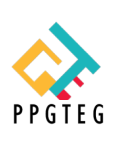 In 2019, PPGTEG participated in the II Institutional Evaluation Symposium at UFRPE, under the theme "Self-evaluation on the Agenda: Undergraduate and Graduate Education". As a follow-up to the suggestions made by participants during the roundtable discussion “Self-evaluation and Planning in Graduate Programs,” a meeting was held with members of the Internal Evaluation Committee (CPA), the Dean of Graduate Studies (PRPG), and the Office of Planning and Institutional Development (PROPLAN) to outline strategies for implementing a self-evaluation and strategic planning process within UFRPE's graduate programs. This initiative was in response to the directive issued by CAPES through Ordinance No. 148/2018, which proposed the implementation of a systematic self-evaluation process in graduate programs.
In 2019, PPGTEG participated in the II Institutional Evaluation Symposium at UFRPE, under the theme "Self-evaluation on the Agenda: Undergraduate and Graduate Education". As a follow-up to the suggestions made by participants during the roundtable discussion “Self-evaluation and Planning in Graduate Programs,” a meeting was held with members of the Internal Evaluation Committee (CPA), the Dean of Graduate Studies (PRPG), and the Office of Planning and Institutional Development (PROPLAN) to outline strategies for implementing a self-evaluation and strategic planning process within UFRPE's graduate programs. This initiative was in response to the directive issued by CAPES through Ordinance No. 148/2018, which proposed the implementation of a systematic self-evaluation process in graduate programs.
Subsequently, the program engaged in the self-evaluation process conducted by the PRPG in collaboration with UFRPE’s CPA. This included the distribution of evaluation instruments to faculty and students, which culminated in the First Self-Evaluation Report of UFRPE's Graduate Programs.
In 2020, PPGTEG played an active role in collaboration with the Office of Research in a special committee tasked with developing instruments to assess the conditions of faculty and students during the pandemic. The evaluation instrument served as the foundation for the continuity plan for graduate teaching activities at UFRPE. That same year, PPGTEG also established the CAP – Planning and Evaluation Committee, which is responsible for updating the program's strategic planning, designing self-evaluation strategies, and organizing plenary meetings for collective reflection on key aspects of the program, such as: curriculum structure, flexibility of in-person requirements, and faculty profile. These reflections led to the identification of the following needs:
-
Modernization of the curriculum, incorporating new educational trends to ensure the program delivers up-to-date knowledge and strengthens research methodologies in Distance Education to improve dissertation quality;
-
Faculty reinforcement, due to the departure of some faculty members in 2019 and 2020;
-
Careful selection of new faculty, based on alignment with the program’s area of concentration, goals, and scientific competence;
-
Greater flexibility in course delivery, including the offering of part of the program's workload through distance learning modalities, given the significant number of students from other states.
With regard to the curriculum, the plenary meetings on evaluation and planning held throughout 2020 led to the design of a new curriculum framework, including updated course descriptions, which currently has the full support of the faculty. The implementation of this updated curriculum is among the discussion points for the next four-year planning cycle.
Although the program intended to bring in new faculty members in 2020, the necessary actions did not progress due to challenges posed by the pandemic. These actions remain under discussion for implementation in the upcoming quadrennium.
Based on this ongoing discussion, CAP is currently finalizing the strategic planning instrument for the next four-year cycle.

